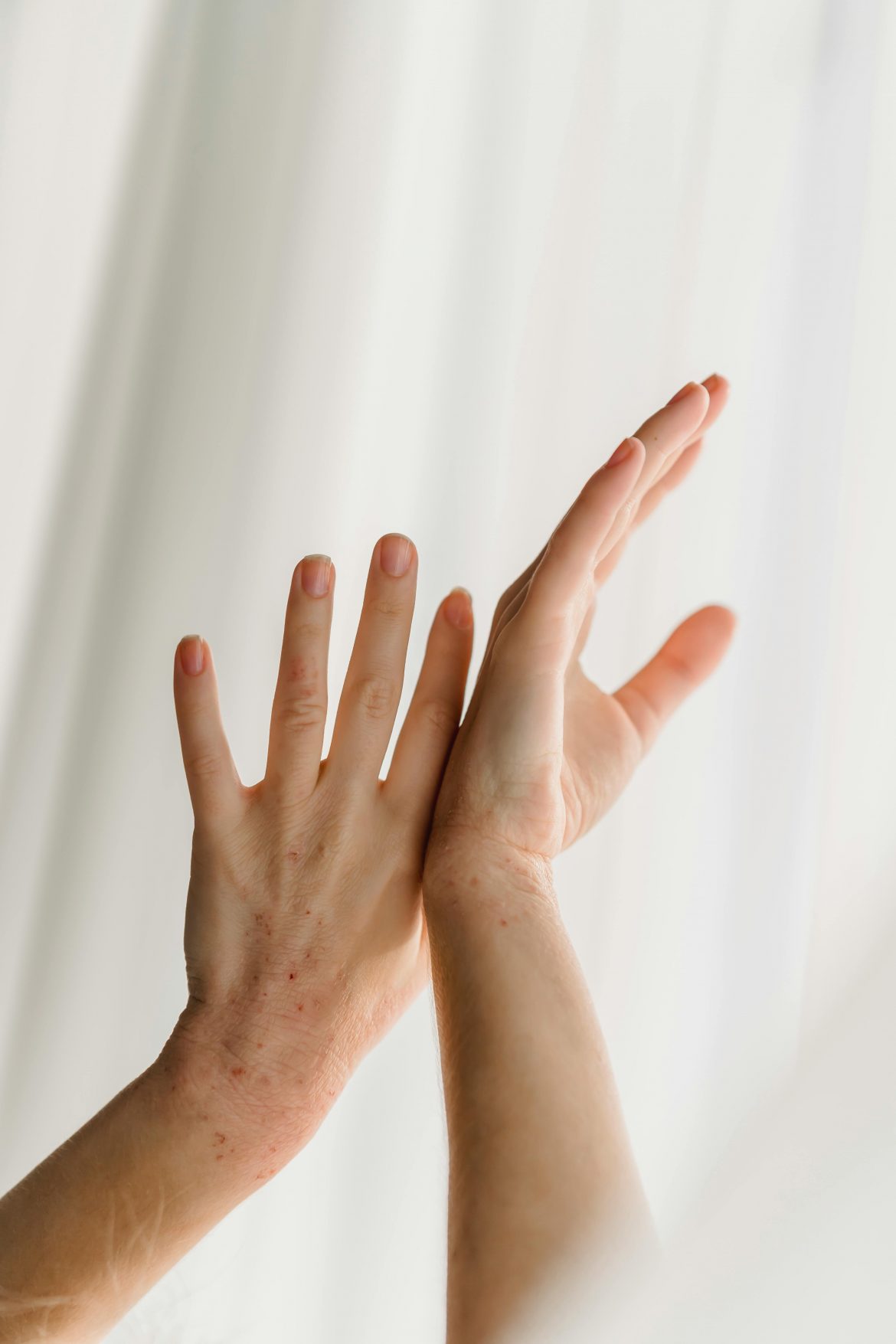Psoriasis is a chronic autoimmune condition that affects the skin, causing red, scaly patches that can be itchy and painful. Although not much is know about the cause of the condition, we know that it can be passed down from generation to generation.
There’s no known cure for psoriasis, managing the condition involves a combination of medical treatments and holistic approaches that can assist in reducing symptoms and improving quality of life.
What is psoriasis?
Psoriasis is characterised by a rapid buildup of skin cells that form red, scaly patches that are often itchy or painful. This occurs due to an overactive immune response, which mistakenly targets healthy skin cells, accelerating their production cycle.
The most common areas affected include the scalp, elbows, knees, and lower back, though it can appear anywhere on the body.
Psoriasis varies in severity from mild to severe and can significantly impact quality of life. Triggers for flare-ups include stress, infections, skin injuries, and certain medications.
Holistic remedies for psoriasis
Holistic remedies for psoriasis focus on lifestyle and diet changes as well as natural therapies that work to treat symptoms alongside conventional medicine. Here are five holistic approaches that may help alleviate symptoms of psoriasis:
Soothing aloe vera
Aloe vera has long been valued for its soothing properties on the skin. It can help reduce redness, scaling, and inflammation associated with psoriasis lesions. Applying pure aloe vera gel directly to affected areas several times a day can provide relief and promote healing. Look for products that contain high concentrations of aloe vera or consider growing an aloe plant at home for fresh gel.
ALSO SEE: What’s the deal with foam rollers? Do you need one?
Omega-3 fatty acids
Omega-3 fatty acids, found in fatty fish like salmon, mackerel, and sardines, as well as in flaxseed and walnuts, have anti-inflammatory properties that may help reduce inflammation associated with psoriasis. Adding these foods to your diet or taking fish oil supplements can potentially lessen the severity of symptoms over time. It’s essential to consult with a healthcare provider before starting any new supplement regimen.
Spicy turmeric
Turmeric, a spice commonly used in Indian cuisine, contains curcumin, a compound known for its anti-inflammatory and antioxidant properties. Studies have shown that applying a paste made from turmeric and water directly to psoriasis plaques or taking curcumin supplements may help reduce symptoms. Including turmeric in cooking or drinking turmeric tea regularly can also be beneficial.
Foodie probiotics
There is emerging evidence that suggests a link between gut health and autoimmune conditions like psoriasis. Probiotics, which are beneficial bacteria that support digestive health, may help reduce inflammation and improve immune function. Consuming probiotic-rich foods such as yogurt, kefir, sauerkraut, and kombucha or taking probiotic supplements under medical guidance can potentially benefit psoriasis patients.
Mind-body therapies
Stress is known to exacerbate psoriasis symptoms in many individuals. Mind-body therapies such as meditation, yoga, and deep breathing exercises can help reduce stress levels and promote relaxation. These practices may not directly treat psoriasis but can contribute to overall well-being and potentially reduce flare-ups triggered by stress.
Other treatment methods include:
- Vitamin D or UV rays (Sun exposure)
- Oatmeal baths
- Apple Cider Vinegar
ALSO SEE:
Featured Image: Pexels

